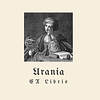Take a photo of a barcode or cover
I wanted to like this book. Really, I did. While the premise was interesting, I agree with others that the execution was poor. Li Lan is not particularly likable...she's often dense and oddly erratic in her inner prose. Outside characters say she is smart, but the author never proved this.
Other characters, particularly the two love interests, were paper thin in their characterizations. I still don't understand how she came to like, let alone love, Love Interest B. Dialogue between Li Lan and Love Interest B was frequently wooden and painfully awkward at times (That last kiss scene? *awkward turtle*).
The prose had its beautiful moments. Colors, sounds, and images were vividly described, which I think made the poorly built characters stand out to me more in contrast. It's like Choo had this wonderful world built in her head and not all of it made it onto the page. Occasionally, she would interrupt interesting prose to insert exposition about Malay dress, customs, and history, which I found frustrating.
Anyways, I don't particularly recommend this book. Some have made the argument that this reads like YA, but this truth of the matter is that I've read YA romance/historical fiction/fantasy novels that are better.
Other characters, particularly the two love interests, were paper thin in their characterizations. I still don't understand how she came to like, let alone love, Love Interest B. Dialogue between Li Lan and Love Interest B was frequently wooden and painfully awkward at times (That last kiss scene? *awkward turtle*).
The prose had its beautiful moments. Colors, sounds, and images were vividly described, which I think made the poorly built characters stand out to me more in contrast. It's like Choo had this wonderful world built in her head and not all of it made it onto the page. Occasionally, she would interrupt interesting prose to insert exposition about Malay dress, customs, and history, which I found frustrating.
Anyways, I don't particularly recommend this book. Some have made the argument that this reads like YA, but this truth of the matter is that I've read YA romance/historical fiction/fantasy novels that are better.
An entertaining and romantic page-turner about a young woman in British Malaya who gets involved with a variety of spirits and encounters in an amusingly bureaucratic afterlife.
The book started out good but then stalled a little in the middle. I didn't find the instant love thing believable between the main character and the not human dragon god. It happened a bit too fast and oddly. That took me right out of the story and I never felt engaged by it again.
Overall, I cannot say it is a bad book. I can see why others would enjoy it and the story was wonderfully written. It just didn't suit my taste entirely so I merely liked it instead of loved it.
Overall, I cannot say it is a bad book. I can see why others would enjoy it and the story was wonderfully written. It just didn't suit my taste entirely so I merely liked it instead of loved it.
The ending honestly felt like it came out of nowhere.
So difficult to “rate” this book.
5/5 for creativity for sure.
1/5 for enjoyment.
Did I like this book? No.
It had been billed as “historical fiction” but they forgot to add fantasy to the description.
The historical fiction that I like is heavy on the history and light on the fiction. And it sure as shootin’ doesn’t involve fantasy.
This was all fantasy. It’s in 3 sections and for some reason I thought that the first section would be the historical part then sections 2 and 3 would be the fantasy parts.
Nope. All 3 parts are fantasy.
Just not my cup of tea.
5/5 for creativity for sure.
1/5 for enjoyment.
Did I like this book? No.
It had been billed as “historical fiction” but they forgot to add fantasy to the description.
The historical fiction that I like is heavy on the history and light on the fiction. And it sure as shootin’ doesn’t involve fantasy.
This was all fantasy. It’s in 3 sections and for some reason I thought that the first section would be the historical part then sections 2 and 3 would be the fantasy parts.
Nope. All 3 parts are fantasy.
Just not my cup of tea.
adventurous
hopeful
mysterious
fast-paced
Plot or Character Driven:
A mix
Strong character development:
Yes
Loveable characters:
Yes
Diverse cast of characters:
Yes
Flaws of characters a main focus:
No
adventurous
dark
mysterious
tense
medium-paced
Plot or Character Driven:
A mix
Strong character development:
Yes
Loveable characters:
Complicated
Diverse cast of characters:
Yes
Flaws of characters a main focus:
Yes
I enjoyed this! I wasn’t sure what to expect going in, but Yangzse Choo is really good at creating a captivating visual of these historic times and feelings. Also I can’t believe Li Lan was 17 for half the book holy crap.
adventurous
dark
emotional
mysterious
tense
fast-paced
Plot or Character Driven:
Plot
Strong character development:
Yes
Loveable characters:
Yes
Diverse cast of characters:
Yes
Flaws of characters a main focus:
Yes
Inizia come un romanzo storico, si sviluppa come un Bangsian Fantasy, sottogenere molto raro del Fantasy. Quindi una bellissima scoperta.
Siamo nella Malesia di fine Ottocento. Il popolo malese ha acquisito i costumi cinesi. Tra questi, anche il mínghūn, il rituale delle spose fantasma. Li Lan è stata individuata da una famiglia potente come sposa potenziale del loro primogenito scomparso prematuramente. La ragazza, appartenente a una famiglia nobile, ma decaduta, non vorrebbe accettare ed è ancor meno propensa quando il suo "promesso sposo" viene a tormentarla in sogno dove dal mondo degli spiriti, le promette potere, ricchezza e felicità.
Così Li Lan cade in una spirale di eterna indecisione e quando anche lei oltrepassa la soglia del regno dei vivi per entrare in quello dei morti, tutto cambia. Nuovi incontri, nuove rivelazioni che la metteranno alla prova. Riuscirà a trovare la felicità?
Del rituale mínghūn sapevo già qualcosa grazie a un episodio della serie "Bones" dove si indagava su alcune ossa rubate per celebrare questo rituale. Dopo la lettura di questo romanzo ho potuto conoscere un altro aspetto di questo mondo. Questa volta non erano due giovani scheletri che dovevano essere simbolicamente uniti in matrimonio dopo la morte per poter avere un coniuge nell'oltretomba, bensì una ragazza viva che avrebbe dovuto sposare un defunto affinché quest'ultimo potesse avere una moglie. Lei sarebbe vissuta da giovane vedova nella casa dei suoceri. Una prospettiva per noi agghiacciante, ma allora poteva essere un'ottima sistemazione per quelle donne non interessate ai figli e all'amore. C'è poi la questione dell'onore della famiglia, la preoccupazione per il futuro. Eppure questo non è un semplice romanzo rosa, è una storia di faide famigliari, tradimenti, ripicche, gelosie, omicidi.
Inoltre, l'ambientazione inusuale rinfresca un genere fermo praticamente a Dante Alighieri e al più tardi a Mark Twain. Non il più diffuso tra i sottogeneri dei fantasy, per questo motivo la lettura risulta ancora più interessante.
Siamo nella Malesia di fine Ottocento. Il popolo malese ha acquisito i costumi cinesi. Tra questi, anche il mínghūn, il rituale delle spose fantasma. Li Lan è stata individuata da una famiglia potente come sposa potenziale del loro primogenito scomparso prematuramente. La ragazza, appartenente a una famiglia nobile, ma decaduta, non vorrebbe accettare ed è ancor meno propensa quando il suo "promesso sposo" viene a tormentarla in sogno dove dal mondo degli spiriti, le promette potere, ricchezza e felicità.
Così Li Lan cade in una spirale di eterna indecisione e quando anche lei oltrepassa la soglia del regno dei vivi per entrare in quello dei morti, tutto cambia. Nuovi incontri, nuove rivelazioni che la metteranno alla prova. Riuscirà a trovare la felicità?
Del rituale mínghūn sapevo già qualcosa grazie a un episodio della serie "Bones" dove si indagava su alcune ossa rubate per celebrare questo rituale. Dopo la lettura di questo romanzo ho potuto conoscere un altro aspetto di questo mondo. Questa volta non erano due giovani scheletri che dovevano essere simbolicamente uniti in matrimonio dopo la morte per poter avere un coniuge nell'oltretomba, bensì una ragazza viva che avrebbe dovuto sposare un defunto affinché quest'ultimo potesse avere una moglie. Lei sarebbe vissuta da giovane vedova nella casa dei suoceri. Una prospettiva per noi agghiacciante, ma allora poteva essere un'ottima sistemazione per quelle donne non interessate ai figli e all'amore. C'è poi la questione dell'onore della famiglia, la preoccupazione per il futuro. Eppure questo non è un semplice romanzo rosa, è una storia di faide famigliari, tradimenti, ripicche, gelosie, omicidi.
Inoltre, l'ambientazione inusuale rinfresca un genere fermo praticamente a Dante Alighieri e al più tardi a Mark Twain. Non il più diffuso tra i sottogeneri dei fantasy, per questo motivo la lettura risulta ancora più interessante.
The world and setting were great, but I didn't fall in love with the characters.





